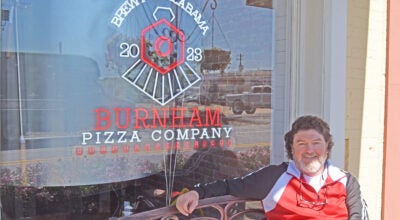Lighting up going up?
Published 3:00 am Saturday, March 31, 2012
A local pediatrician will be making a trip to Montgomery this week to plead with the House Ways and Means Committee for implementation a “safety net” for the state’s struggling Medicaid budget.
Marsha Raulerson, owner of Lower Alabama Pediatrics in Brewton, said a $1-per-pack user fee on cigarettes and other tobacco products would create enough revenue to help offset the shortfalls in Medicaid and All Kids funding.
“Opponents of the user fee say it is an unfair tax on the poor,” Raulerson said. “But, 21 percent of adults in Alabama smoke — many of these are not poor. The poor in Alabama are our children, with more than one in four children in our state living in poverty.”
Raulerson said the user fee being proposed would raise more than $2 million in revenue, which would help fund the gap in funding services for our children.
“Our budget shortfall threatens to cut child care subsidies for working mothers, decrease mental health services for children and do away with our Child Abuse Prevention Program,” Raulerson said. “That program has been extremely successful in protecting our most vulnerable children. The shortfall we see limits the number of children receiving health care through All Kids and underfunds Medicaid, which now serves 465,504 children in our state.”
Raulerson said the budget woes are hurting more than the children who receive healthcare through Medicaid and All Kids.
“Medicaid is out of money,” Raulerson said. “My practice didn’t get paid this month. We need to do something. If Medicaid fails, the entire health care system in Alabama will fail.”
Raulerson said the tobacco user fee revenue could even be used for a stop smoking program statewide.
“Without our safety nets for children, our state will be shooting itself in the foot,” Raulerson said. “The user fee revenue could be designated first to a smoking cessation program for smokers in the state and the rest to support those program that support services and health care for our children.”
Tina Findley with the Escambia County Health Department said the cost of cigarettes — including any fees or taxes associated with the purchase — is directly related to the number of people who smoke.
“In New York a pack of cigarettes cost about $10 because of taxes added to them,” Findley said. “Our tax on cigarettes right now is at 42.5 cents per pack. Even if we raise the cost by adding a $1 user fee, our taxes would still be less than the $1.50 per pack national average tax on cigarettes. Cost alone would have a direct impact on smokers.”
In the Morbidity and Mortality Weekly Report of the Center for Disease Control and Prevention, officials say increasing the price of cigarettes reduces the demand for cigarettes, thereby reducing youth initiation and cigarette consumption and decreasing the prevalence of cigarette use in the United States overall, particularly among youths and young adults. The most common way to increase the price of cigarettes, CDC officials say, is to increase cigarette excise taxes, which currently are imposed by all states and the District of Columbia.
MMWR officials also released comments that support the efforts being undertaken by Raulerson and others who are pushing for the user fee implementation.
“Cigarette tax increases are a proven method to increase state revenues,” MMWR reported. “States that have substantially increased their cigarette taxes also have increased related revenue, even accounting for consumption declines and any increases in smuggling or tax avoidance.”
Findley said contacting legislators is one way to help promote the user fee to help with health care funding.
“It’s important to contact our legislators and let them know we need this fee,” Findley said. “We elected them and they are supposed to work with us and for us.”
Raulerson said residents of Alabama can make a big impact on the decision to implement the fee by making contact with legislators.
“Call, write or email your legislators about this,” Raulerson said. “Tell them you will support their decision to support the $1 per pack user fee for a pack of cigarettes.”
Alabama Governor Robert Bentley has said the proposed bills in favor of imposing an increase in taxes on cigarettes would be a “tax on the poor” residents in the state.
Bentley also said he would not propose any tax increases for the General Fund, education or anything else.
“I did sign a no-tax pledge, and I expect to live up to my commitments,” he said.
Two bills have been proposed that would call for an increase in taxes on cigarettes — and other tobacco products — by as much as $1 per package.





